Competition Final | Thursday 23 March 2023
Donatella Flick LSO Conducting Competition 2023
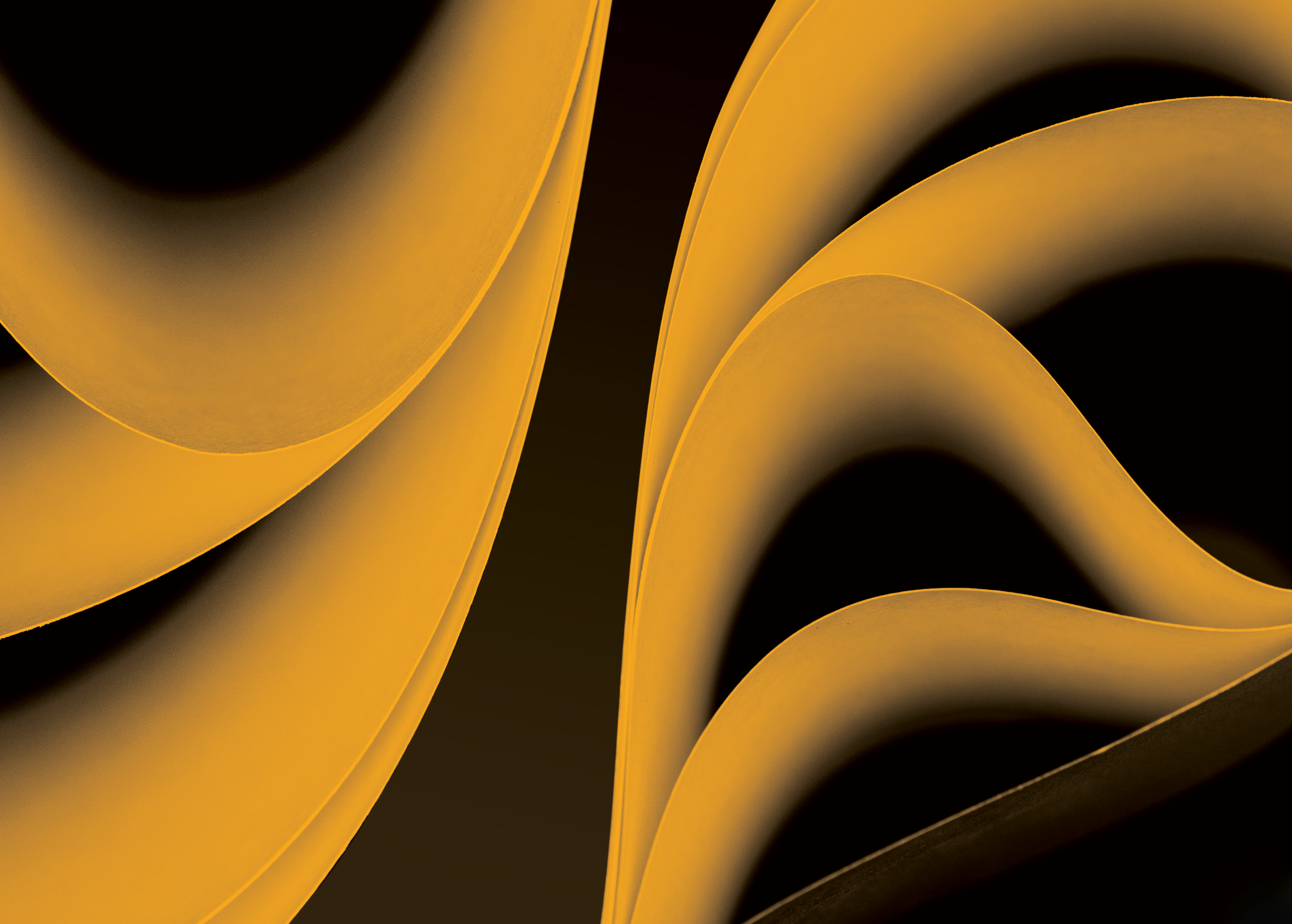
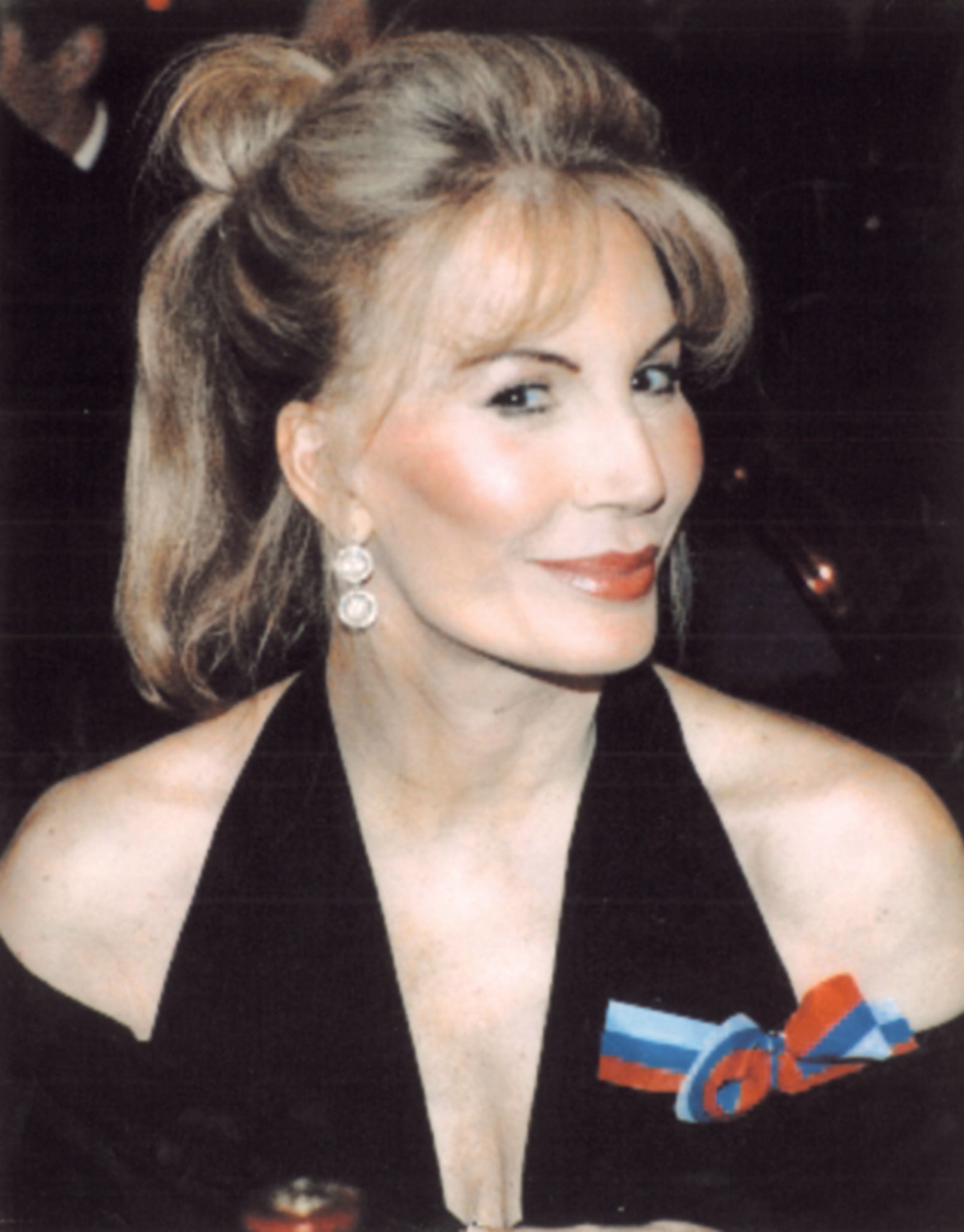
Donatella Flick
Founder of the Competition

It is a pleasure to welcome you to the Final of the 2023 Donatella Flick LSO Conducting Competition, which I founded 33 years ago in 1990, under the kind patronage of His Royal Highness, the former Prince of Wales. It is a great joy to come together once again for this year’s Final.
The Competition’s principal aim is to bridge the gap between conservatoire training and professional life for emerging young conductors. Since 1996, the Competition has had the honour to have the London Symphony Orchestra play for the Final, and since 2012 the LSO and the Competition have forged a partnership where the administration has been undertaken by the Orchestra. I continue to take a central role in the Competition’s organisation and take great pleasure in supporting it.
In addition to an award of £15,000, the winner will have the opportunity to become Assistant Conductor with the London Symphony Orchestra. During this time the winner will work with the LSO’s family of conductors on the preparation of concerts, often on the assessment of new scores, take part in the LSO’s learning and community programme, LSO Discovery, accompany the Orchestra on tour and, should the opportunity arise, conduct the LSO in concert.
I am delighted to be able to introduce a most esteemed panel of judges this year, including conductors Martyn Brabbins, Sian Edwards and Sir Antonio Pappano (LSO Chief Conductor Designate from September 2023); composer Sally Beamish; LSO Principal Oboe Juliana Koch; and David Alberman, Principal Second Violin and Chair of the LSO, who is Chair of our Jury tonight. I hope you enjoy this evening, the Final of the 17th Competition.
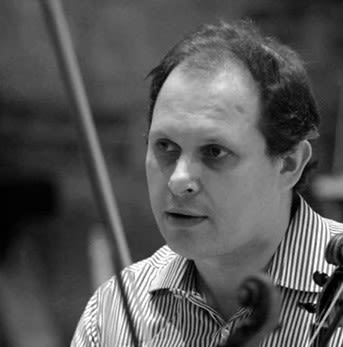

David Alberman
Chair of the Jury

It gives me great pleasure to bid you a warm
welcome to tonight’s Final of the Donatella
Flick LSO Conducting Competition. Our three
finalists have been chosen from 80 original
applicants who were then reduced to a shortlist
of 20. These 20 talented conductors have
spent the past three days here at LSO St Luke’s
conducting music from the Classical to the
Contemporary periods including orchestral works
by Beethoven, Shostakovich and Sally Beamish.
They also accompanied soloists in concertos by
Mozart and Shostakovich. After all that, we chose
the three finalists whom you will meet tonight.
They are competing tonight for the coveted
titles of Competition Winner and LSO Assistant
Conductor for the coming year. The choice of
music in tonight’s Final allows us to see the
candidates conducting a number of different
musical styles; and the running order of the
programme enables the Jury and the audience to
compare the candidates closely in similar repertoire.
The ongoing generosity, passion and enthusiasm
of founder Donatella Flick make this Competition
not only possible, but the great success which
it has become. It is a pleasure for the LSO to
continue to work closely with her as together
we seek to inspire the next generations of
conductors, an aim which has been at the heart
of the Competition for the last 33 years.
I would also like to take this opportunity to
extend a particularly warm welcome to those
who join me on our esteemed panel of judges,
and I thank them sincerely for their commitment
to the Competition. Whilst the other members
of the Jury and I look forward to our task ahead
this evening and to enjoying the variety of
interpretations, I know there will be a difficult
decision to make at the end!
Finally, many thanks to our broadcast partner
medici.tv – who are broadcasting tonight’s
Final live – for their support of the LSO and the
Donatella Flick LSO Conducting Competition.
I very much hope you enjoy this evening’s Final!
Competition Stages
This evening’s three conductors have progressed through a number of stages to qualify for the Final Round of the Competition. Applications opened in June 2022 to conductors under the age of 30 from the European Union, the United Kingdom, Norway, Iceland, Liechtenstein and Switzerland. Applicants were required to send a video recording of recent performances or rehearsals of them conducting three contrasting pieces. A selection panel of experts reviewed all the applications and chose 20 candidates to enter Round One of the Competition.
ROUND ONE
Tuesday 21 March 2023, LSO St Luke's
Twenty candidates were invited to rehearse and conduct the LSO in extracts from:
Wolfgang Amadeus Mozart Symphony No 39
Ludwig van Beethoven Symphony No 8
Sergei Prokofiev Symphony No 1
London Symphony Orchestra
ROUND TWO
Wednesday 22 March 2023, LSO St Luke's
Ten semi-finalists were invited to rehearse and conduct the LSO in extracts from:
Dmitri Shostakovich Cello Concerto No 1
Wolfgang Amadeus Mozart Clarinet Concerto
Sally Beamish Variations on a Theme of Benjamin Britten
David Cohen LSO Principal Cello
Chris Richards LSO Principal Clarinet
London Symphony Orchestra
WNO Associate Conductor in collaboration with the Donatella Flick LSO Conducting Competition 2023
Welsh National Opera is delighted to continue its association with the Competition by offering one of the Finalists the opportunity to join the Company as WNO Associate Conductor for the 2023/24 Season. Previous WNO Associate Conductors have included Competition Finalists Kerem Hasan and Harry Ogg. The WNO Associate Conductor will have the opportunity to work with WNO’s Music Director, Tomáš Hanus, as well as on a range of productions, concerts and engagement activity in Cardiff and at some of the Company’s touring venues in Wales and England.
Thursday 23 March 2023
Donatella Flick LSO Conducting Competition 2023
Richard Wagner Prelude from ‘Tristan and Isolde’
Edvard Grieg Excerpts from ‘Peer Gynt’ – Suites Nos 1 & 2
Hector Berlioz Symphonie fantastique: Movements 1, 2 & 5
London Symphony Orchestra
Broadcast live from LSO St Luke's on medici.tv, and available to watch for free (free account required).
Richard Wagner
Prelude from ‘Tristan and Isolde’
✒️1857–59

First performed in Munich in 1865, Richard Wagner’s opera Tristan and Isolde belongs to the small category of works that can genuinely be said to have changed musical history. In this intense exploration of a love between two individuals that achieves a transcendent level, and can only be consummated in death, he represented the heights and depths of his central characters’ inner feelings in music that reaches an unprecedented level of chromaticism – that is, using notes outside of the main key of any given section. The result is to undermine the individual key to the point where it ceases to have any real solidity. From a historical perspective, this was a highly influential procedure – it would lead to an increased use of chromaticism in the works of many other composers.
Beyond its historical position, Tristan was an exceptional achievement in its own right. Wagner started sketching his score in 1854, when in exile in Switzerland from his revolutionary activities in Germany. It was inspired partly by his love for Mathilde Wesendonck, the wife of a Zurich silk merchant who was supporting him financially at this time. By the time of its Munich premiere, Wagner was involved with Cosima von Bülow, daughter of another supporter, Franz Liszt, and wife of the conductor of that first performance, Hans von Bülow.
The prelude (and indeed the opera as a whole) makes use of Wagner’s characteristic system of Leitmotifs – musical themes or fragments which symbolise characters or elements in the drama.
Five important examples arrive in the opening bars. The first is ‘Grief’ (cellos), characterised by a rising sixth which falls back chromatically while ‘Longing’ (oboes) rises above it. A few bars later comes ‘Tristan’s Anguish’ (cellos), succeeded by the fatal ‘Look’ or ‘Glance’ (violins) which instigates the love between the two central characters. Not long afterwards comes ‘Death’ or ‘Fate’ (cellos).
All are chromatic ideas developed throughout the prelude itself and thereby undermining the piece’s harmonic stability. Its most revolutionary aspect is Wagner’s refusal to allow the music to come to rest on a conventional cadence or chord progression; it is as if the listener – like Tristan and Isolde themselves in Act 1 – is constantly at sea, only arriving at harmonic terra firma when their ship finally reaches Cornwall in a blaze of C major.
Note by George Hall
Richard Wagner
1813–86 (Germany)
Richard Wagner completed his first instrumental compositions in 1829, enrolling briefly as a student at Leipzig University two years later. He married the actress Minna Planer in 1836, the couple moving from Riga to Paris in 1839 to escape Wagner’s creditors and living there in extreme poverty. Here he completed his opera Rienzi and created The Flying Dutchman.
His financial difficulties were removed in 1864 by the teenage King Ludwig II, a dedicated Wagnerite who commissioned Der Ring des Nibelungen. Die Meistersinger von Nürnberg was premiered on Ludwig’s command; the king later funded the building of a new theatre at Bayreuth for the sole performance of Wagner’s works.
For the remaining years of his life, Wagner worked on establishing the Bayreuth Festival and composing Parsifal, written specifically for Bayreuth.
Edvard Grieg
Excerpts from ‘Peer Gynt’ – Suites Nos 1 & 2
✒️1875

SUITE NO 1
1 Morning Mood
2 The Death of Åse
3 Anitra’s Dance
4 In the Hall of the Mountain King
SUITE NO 2
1 The Abduction of the Bride. Ingrid’s Lament
2 Arabian Dance
3 Peer Gynt’s Homecoming (Stormy Night on the Sea)
4 Solveig’s Song
When Henrik Ibsen asked Edvard Grieg to provide incidental music for the premiere of his play Peer Gynt in 1876, the composer produced a substantial amount of music, including songs and choral pieces as well as orchestral movements. From it he subsequently compiled two orchestral suites (1888, 1893) that have maintained their popularity in the concert hall.
Peer Gynt is a young, clever and attractive Norwegian who nevertheless never takes responsibility for his actions. When his mother Åse berates him for losing his chance of marrying the wealthy farmer’s daughter, Ingrid, he goes to the wedding, abducts Ingrid, and spends the night with her (Suite 2, movement 1). As a result he is banished and goes off into the mountains where, perhaps in his imagination, he finds himself in the Hall of the Mountain King, the monarch of the selfish trolls (Suite 1, movement 4).
Returning to the real world, he builds a home, where Solveig – a young woman he met at Ingrid’s wedding, and who remains loyal – joins him; but a troll princess turns up with a child she claims to be his. He decides to disappear, though not without saying farewell to his dying mother (Suite 1, movement 2). He sets off on his travels to Africa, where his sharp business practices get him into trouble. One beautiful morning (Suite 1, movement 1) he is robbed of his clothes in the Moroccan desert. Finding a horse and some abandoned Bedouin dress, he rides off to discover a local tribe, who welcome him, believing him to be a prophet (Suite 2, movement 2). Their leader’s daughter Anitra dances for him (Suite 1, movement 3), but then she too robs and leaves him. All the while, back in Norway, Solveig waits patiently for his return (Suite 2, movement 4).
Following further mixed adventures over many years, as an old man he eventually sets off for home but is shipwrecked on the way (Suite 2, movement 3). At an auction at his former home, he meets youngsters who know his name but believe him dead. Finally he once again encounters Solveig, who has remained faithful to him all her life.
Note by George Hall
Edvard Grieg
1843–1907 (Norway)
From the age of six Edvard Grieg received piano lessons from his mother. After studies at Leipzig Conservatory, he returned to Bergen and established his reputation as a pianist.
In the late 1860s Grieg set about raising his stock in the Norwegian capital, Christiania (Oslo). Recognition in Norway came in the early 1870s. The first performance of Peer Gynt in 1876 made the composer a figure of national importance. A series of fine works followed, including the Holberg Suite and nine further albums of Lyric Pieces, all evincing Grieg’s characteristic blend of Romantic lyricism and aspects of native folk music. His gift lay in the expression of intense emotion in works of often miniature proportions, as well as the creation of lyrical melodies.
Composer profile by Andrew Stewart
Hector Berlioz
Symphonie fantastique: Movements 1, 2 & 5
✒️1830

1 Rêveries – Passions (Daydreams – Passions)
2 Un bal (A Ball)
5 Songe d’une nuit du sabbat (Dream of a Witches’ Sabbath)
On 11 September 1827 a 23-year-old French music student called Hector Berlioz went to see a performance of Romeo and Juliet starring the Irish actress Harriet Smithson. It proved to be a fateful encounter, not least because Berlioz fell in love with Juliet and would spend much of his energy over the next few years pursuing her with the crazed devotion of a romantic hero.
During the course of this infatuation, he conceived the idea of writing a piece that would describe his heightened passion and its attendant joys and sorrows, and have it performed to dazzle Miss Smithson with the grandeur and beauty of his ardour. By the time of the first performance on 5 December 1830, Berlioz’s passion had moved on; nevertheless, he did eventually marry Harriet Smithson, though the period of their happiness together was considerably shorter than their marriage.
The symphony’s subtitle, ‘Episode in the Life of an Artist’, pinpoints its autobiographical element, while the work is primarily fantastic in the sense that its descriptive programme focuses far more on fantasy than reality. In writing the piece, Berlioz had recourse to a recurring theme that represents the beloved herself, for which Berlioz coined the phrase idée fixe, a melodic idea that could be varied according to mood and context.
We hear three movements here. In the first, a young man of sensibility awakens to love in the shape of an unknown beautiful woman, whose image, represented by the idée fixe, thereafter imposes itself upon his vision everywhere. In the second, he sees her at a ball. In the finale, he dreams that he is present at a Witches’ Sabbath, to which his beloved also comes to join in the obscene and grisly spectacle.
Note by George Hall
Hector Berlioz
1803–69 (France)
At the age of 17 Hector Berlioz was sent to Paris to study medicine, but after a year became a pupil of the composer Jean-François Le Sueur. In 1826 he entered the Paris Conservatoire, winning the Prix de Rome four years later. His first fully characteristic large-scale work, the autobiographical Symphonie fantastique, was composed in 1830, and the next two decades saw a series of major works including Harold in Italy and Benvenuto Cellini. Some were well-received, but quite early on he began to supplement his income by becoming a prolific and influential critic.
The 1840s were largely spent taking his music abroad, and establishing a reputation as one of the leading composers and conductors of the day. These years of travel produced much less music, but in 1854 the success of L’enfance du Christ encouraged him to embark on a project long resisted: the composition of an epic opera on the Aeneid which would assuage a lifelong passion to two great idols, Virgil and Shakespeare. The Trojans (1856–58) was the culmination of his career. It was also the cause of his final disillusionment and the reason, together with increasing ill-health, why he wrote nothing of consequence in the remaining six years of his life.
Composer profile by David Cairns
The Jury

David Alberman
Principal Second Violin and Chair
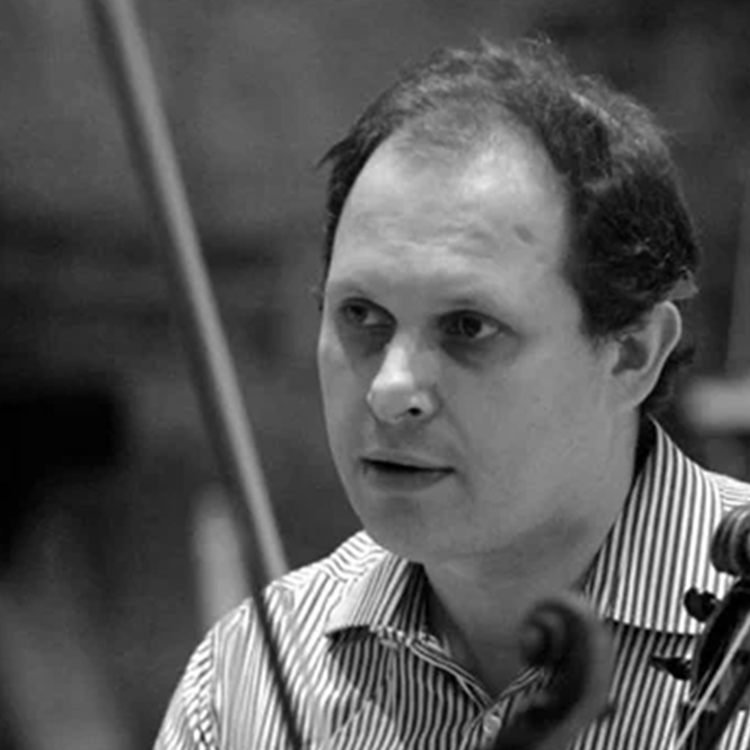
Born in London, David Alberman received his LRAM diploma from the Royal Academy of Music at 16. After playing with the Academy of St Martin in the Fields and the LSO, he became a concertmaster of the Chamber Orchestra of Europe. A long-standing interest in contemporary music led him in 1986 to join the internationally renowned Arditti Quartet, with whom he took part in the world premieres of more than 200 works, and made a number of recordings which won prizes internationally. In 1995 he formed a duo with pianist Rolf Hind, and, in 1998, became Principal Second Violin of the LSO.
David enjoys coaching, has appeared as Guest Concertmaster for the LSO, London Philharmonic, BBC Symphony, BBC Scottish Symphony, Scottish Chamber and Bergen Philharmonic Orchestras, and the Bayrischer Rundfunkorchester, and as soloist with the Orchestre de Lille, BBC National Orchestra of Wales and the ORF Radio Symphony Orchestra in Vienna, among others.
Sally Beamish
Composer
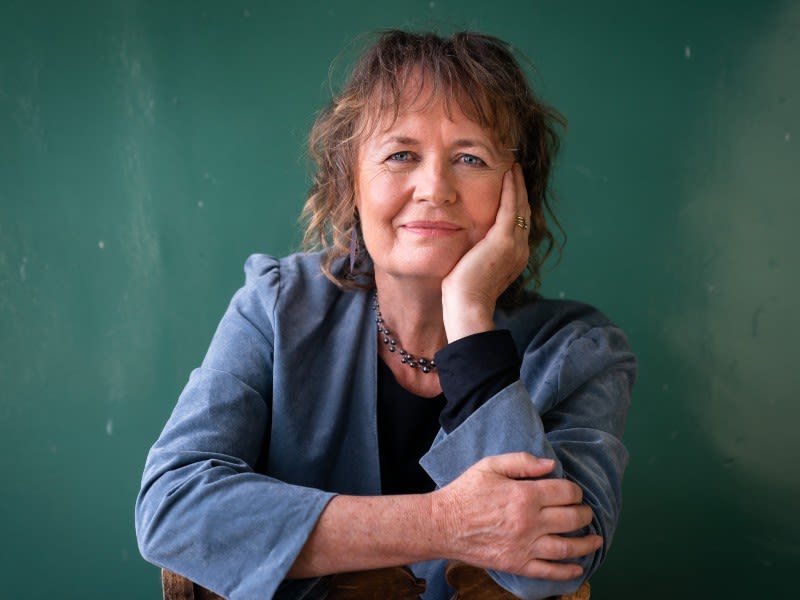
Sally Beamish was born in London. She began her career as a viola player with the Raphael Ensemble, Academy of St Martins and London Sinfonietta, before moving to Scotland in 1990 to focus on composition. In 2018 she won the Award for Inspiration at the British Composer Awards, and in 2020 was awarded an OBE in the Queen’s birthday honours.
She is known for her many concertos for internationally-renowned soloists, including Branford Marsalis, Steven Isserlis and Tabea Zimmermann. Her harp concerto, Hive, was premiered at the BBC Proms in 2022 by Catrin Finch, with BBCNOW conducted by Ariane Matiakh.
Her recent concerto, Distans, for violinist Janine Jansen and clarinettist Martin Fröst, was co-commissioned by the Concertgebouw, LSO, Swedish Radio Symphony and Oslo Philharmonic. It will receive its London premiere at the Barbican in June 2024, with the LSO conducted by Gianandrea Noseda. She is working on her third full-length ballet A Christmas Carol, with choreographer Sir David Bintley, for Finnish National Ballet, to be premiered in December 2023.
Martyn Brabbins
Conductor
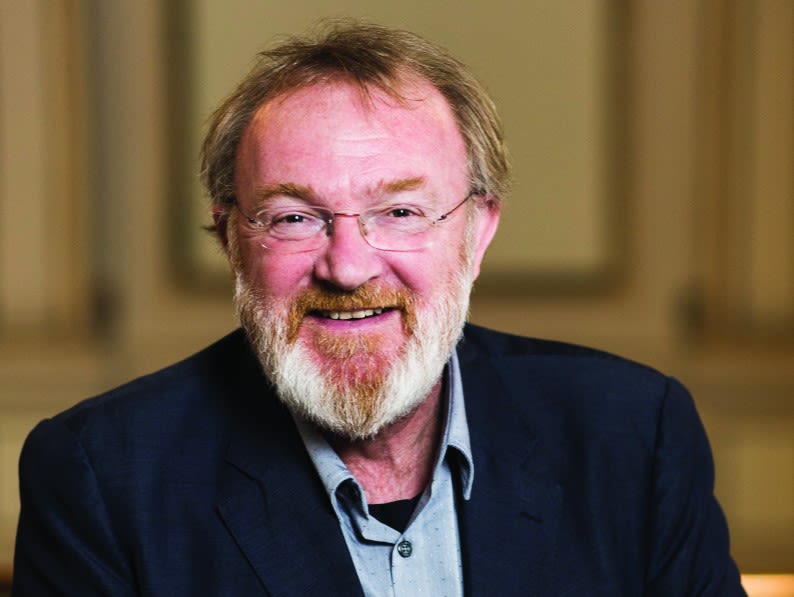
Martyn Brabbins is Music Director of the English National Opera. An inspirational force in British music, Brabbins has had a busy opera career since his early days at the Kirov and more recently at La Scala, the Bayerische Staatsoper, and regularly in Lyon, Amsterdam, Frankfurt and Antwerp. He guests with top international orchestras such as the Royal Concertgebouw, San Francisco Symphony, DSO Berlin, as well as the Philharmonia, BBC Symphony and most of the other leading UK orchestras. He is a popular figure at the BBC Proms, who in 2019 commissioned 14 living composers to write a birthday tribute to him. Known for his advocacy of British composers, he has conducted hundreds of world premieres across the globe. He has recorded nearly 150 CDs to date, including prize-winning discs of operas by Korngold, Birtwistle and Harvey.
He is Prince Consort Professor of Conducting at the Royal College of Music, Visiting Professor at the Royal Scottish Conservatoire and Artistic Advisor to the Huddersfield Choral Society alongside his duties at ENO, and has for many years supported professional, student and amateur music-making at the highest level in the UK, winning the RPS Conductor Award in March 2023.
Sia Edwards
Conductor
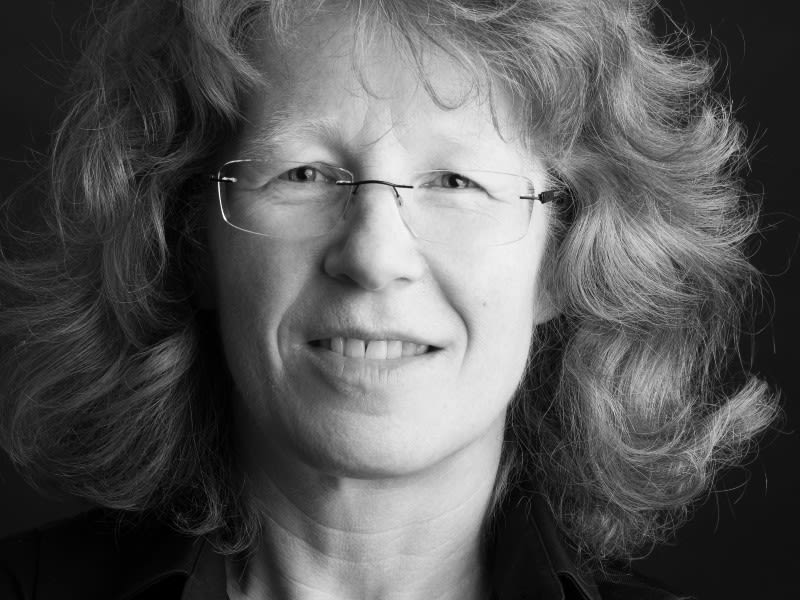
Sian Edwards studied with Sir Charles Groves and Norman Del Mar before becoming a pupil of the legendary Prof I.A. Musin at the Leningrad Conservatoire. Winning the first Leeds Conductors’ Competition in 1984 launched her professional career both in Britain and abroad, conducting symphonic and operatic repertoire as well as many world premieres.
In 2013 Sian Edwards was appointed Head of Conducting at the Royal Academy of Music, where she directs the Masters course, as well as the Glover-Edwards Conducting Programme. In July 2018 the Academy awarded her an Honorary Fellowship, and in January 2022 she was appointed Professor at the University of London. Since October 2022 Sian has also held a position as Professor of Conducting at the University of Music and the Performing Arts, Vienna.
Juliana Koch
LSO Principal Oboe
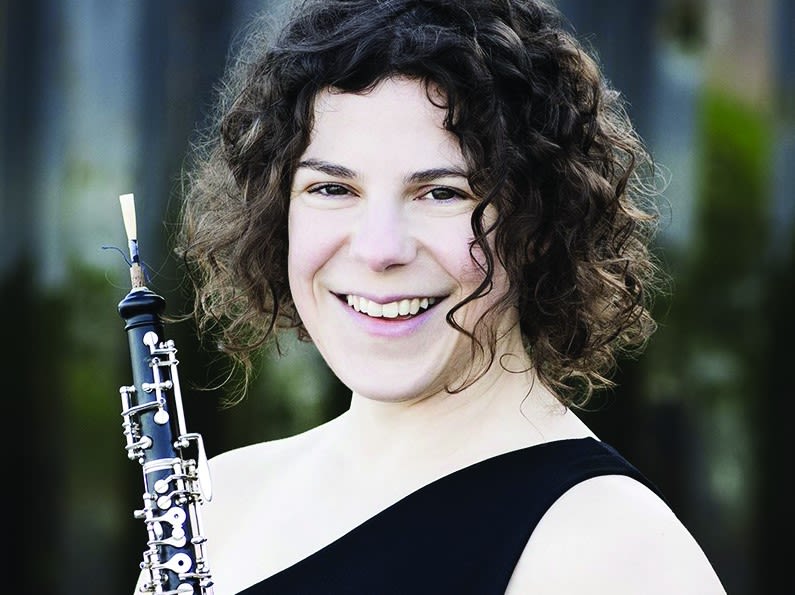
J uliana Koch is Principal Oboe of the London Symphony Orchestra, and a laureate of the ARD International Music Competition 2017. She was appointed Professor of Oboe at the Royal College of Music in 2018. For her solo debut at the Berlin Philharmonie in 2019, Juliana performed the Richard Strauss Oboe Concerto with the Deutsches Symphonie-Orchester Berlin. Other solo engagements include appearances with the Symphonieorchester des Bayerischen Rundfunks at the Philharmonie im Gasteig (Munich), the Münchener Kammerorchester, Tapiola Sinfonietta, and the Hungarian National Philharmonic, among others.
Juliana is an active chamber musician and has performed at many prestigious festivals around the world, including Musica Viva’s Huntingon Estate Music Festival in Australia, Lucerne Festival and Bachfest Leipzig. She has appeared in recital performances in the Konzerthalle Bamberg, NDR Hannover and Deutschlandfunk Köln. As a soloist Juliana has recorded for Chandos, BIS, Wergo, cpo and LSO Live labels, including first recordings of the Ruth Gipps and Enjott Schneider Oboe Concertos.
Sir Antonio Pappano
Conductor
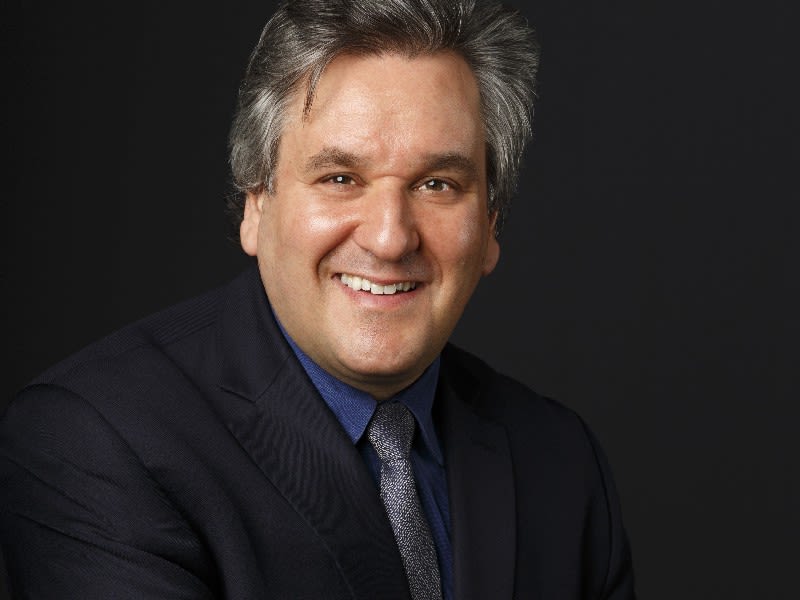
One of today’s most sought-after conductors, acclaimed for his charismatic leadership and inspirational performances, Sir Antonio Pappano has been Music Director of the Royal Opera House Covent Garden since 2002, and Music Director of the Orchestra dell’Accademia Nazionale di Santa Cecilia in Rome since 2005. He has held previous titles with Norwegian Opera, Théâtre Royal de la Monnaie, Brussels, and the Israel Philharmonic Orchestra.
In 2023 he will become Chief Conductor Designate of the London Symphony Orchestra, taking the full Chief Conductor title from 2024. Pappano appears as guest conductor with many of the world’s most prestigious orchestras, festivals and opera houses, including the Berlin and New York Philharmonic Orchestras, the London, Chicago and Boston Symphonies, the Vienna State Opera, Metropolitan Opera New York, the Salzburg and Verbier Festivals, and the BBC Proms.
In 2012 he was created a Cavaliere di Gran Croce of the Republic of Italy, and a Knight of the British Empire for his services to music, and in 2015 he was named the 100th recipient of the Royal Philharmonic Society’s Gold Medal, the body’s highest honour.
The Conductors

Clara Maria Bauer
(29, Austria)
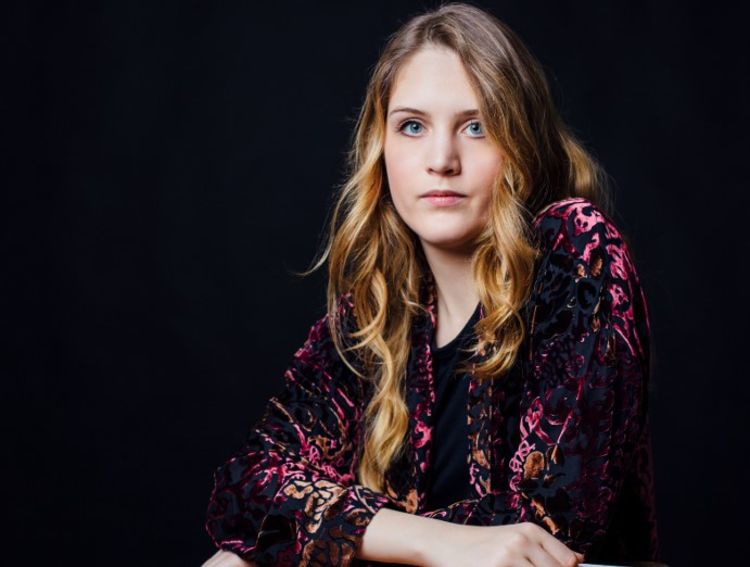
I n 2022 Clara Maria Bauer (Wagsteiner) was selected for the Akademie Musiktheater heute of the Deutsche Bank Stiftung. She received the Startstipendium (scholarship) for Music and Performing Arts from the Federal Ministry of Arts and Culture for 2022/23. In 2021 she put a long-held dream into action – to form a virtuoso chamber orchestra, the Alma Mahler Philharmonie, which shares new concert settings and programmes with a focus on 20th- and 21st-century music with its audience. In 2019 she won the position of conducting fellow of the Bergische Symphoniker in Wuppertal, Germany.
Clara was born in Vienna, Austria, in 1993. Trained as a conductor by Mark Stringer, she is used to conducting a wide repertoire ranging from operas to symphonic music, and from Renaissance to contemporary. Clara completed her studies at the University of Music and Performing Arts Vienna in 2020, graduating with honours. She plays flute, piano, cello and saxophone. In the 2022/23 season, she conducted her first studio recording with orchestral music by Erich Zeisl and Eric Ziegelbauer.
Félix Benati
(26, France)
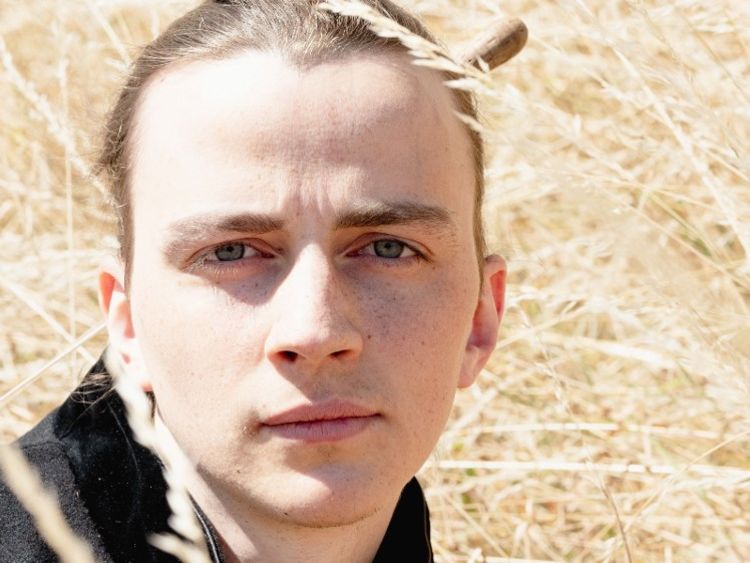
Félix Benati is a French conductor, passionate about 20th-century symphonic repertoire and opera. He took part in the first Conducting Workshop of the Luzerner Sinfonieorchester with Michael Sanderling in November 2022, competed in the 16th Donatella Flick LSO Conducting Competition in May 2021, and was quarter-finalist of the second International Opera Conducting Competition of the Opéra Royal de Wallonie in August 2022. He has worked with Mikko Franck, Arie van Beek, Orchestre de Picardie, Ensemble intercontemporain and Orchestre National des Pays de la Loire. In 2023 he will work with the Orchestre National de Cannes and the Orchestre des Amateurs de la Philharmonie de Paris.
He graduated in orchestral conducting from the National Conservatoire of Paris. He previously assisted Lucie Leguay in Strauss’ Die Fledermaus and in 2022, he co-founded vocal ensemble Les Temps Dérobés in 2017. He has worked with Les Métaboles, Sequenza 9.3 and has been assistant conductor at Mikrokosmos Choir from 2017 to 2021. In 2017 Félix was guest conductor at the Calcutta Chamber Orchestra and also worked with Kolkata Youth Orchestra. He is a member of the Amis d’Olivier Greif Association.
David Bui
(30, Germany)
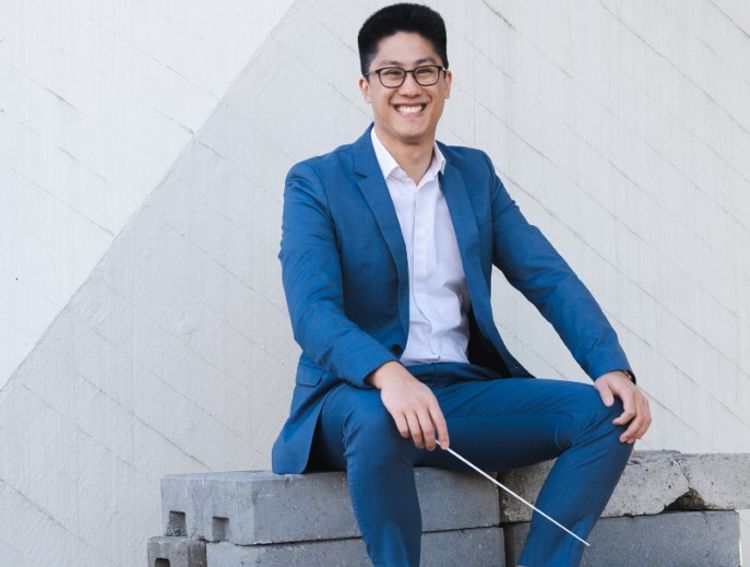
David Bui is a first-prize winner of the Ionel Perlea International Conducting Competition 2021 and has been RBC Assistant Conductor of the Vancouver Symphony Orchestra since April 2022, under the direction of chief conductor Otto Tausk.
In 2022 he finished his postgraduate studies with Ulrich Windfuhr at the Hochschule für Musik und Theater in Hamburg, which he completed with distinction. He also studied at the Hochschule für Musik Hanns Eisler in Berlin, under the guidance of Professor Christian Ehwald and Professor Hans-Dieter Baum.
David has participated in masterclasses led by Jukka-Pekka Saraste, Riccardo Muti and Paavo Järvi and was second prize winner at the 11th Edition International Conducting Competition Jeunesses Musicales Bucharest.
David is supported by the German Federal Government Commissioner for Culture and Media within the framework of Reboot Culture (Kultur Neustart) and was a scholarship holder of Forum Conducting until 2021.
Nicolò Foron
(25, Germany)
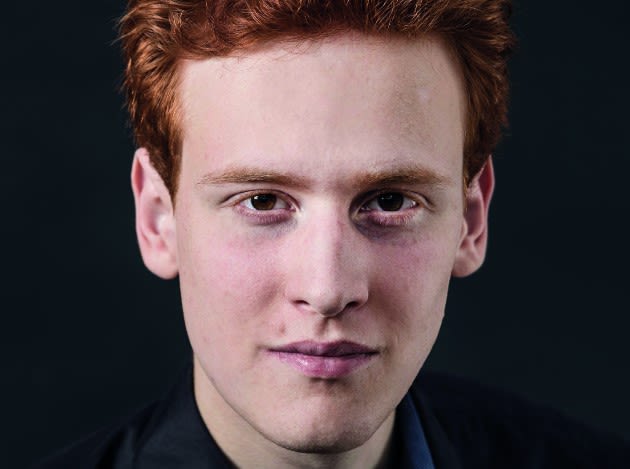
Nicolò Umberto Foron – born in Genova, Italy – is principal assistant conductor of Ensemble intercontemporain and is mentored by Peter Eötvös. He was a 2022 Tanglewood Conducting Fellow, winner of the 2021 International Conducting Competition Bucharest, and has worked closely with Andris Nelsons.
He has broad experience with symphonic, opera and contemporary music having already conducted more than 100 premieres. He has conducted orchestras such as the Orchestra National de Montpellier, Sofia Philarmonic (with soloist Sabine Meyer), Staatskapelle Weimar, the Noord Netherlands Orchestra, Symfonieorkest Vlaanderen and the Ensemble intercontemporain.
Besides his engagements he has assisted conductors such as François-Xavier Roth, Martyn Brabbins, Matthias Pintscher and Lorin Maazel. He assisted Riccardo Muti on a production of Mozart’s The Marriage of Figaro and had masterclasses with Bernard Haitink. Discovered at the age of 11 by Jorma Panula, Nicolò was a student of the Royal Academy of Music and of the Royal College of Music. Besides being a conductor, he is also a pianist and a composer.
Jiří Habart
(30, Czech Republic)
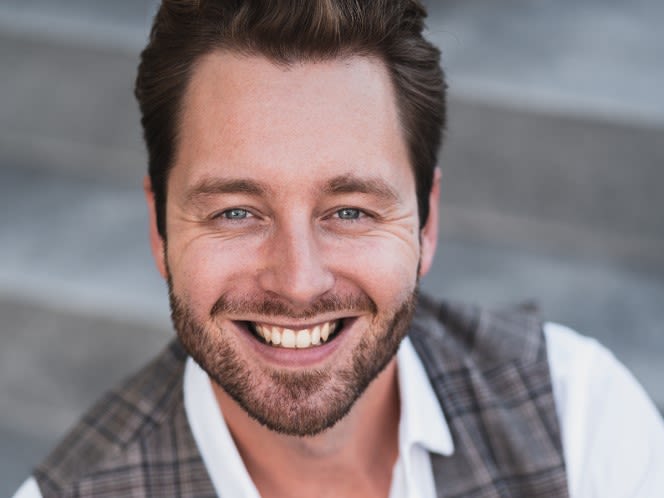
Jiří Habart is a Czech conductor and violinist. He studied conducting at the Janaček Academy of Music and Performing Arts in Brno – under Jakub Klecker and Tomáš Hanus. Jiří also studied the Baroque violin. He was a 2014 Bayreuth Festival scholarship holder and attended courses with Tomáš Netopil, Kirk Trevor, Zsolt Nagy and Mark Stringer.
He is currently a conductor at the National Moravian-Silesian Theatre opera hour in Ostrava, where he has conducted the following ballets and operas: Minkus’ Don Quijote, Tchaikovsky’s The Nutcracker, Adam’s Le Corsaire, Maskats’ Dangerous Liaisons, Verdi’s Nabucco, Salieri’s La Scuola de Gelosi, Smetana’s The Bartered Bride, Massenet’s Manon and Purcell’s Dido and Aeneas.
He co-operates with the Brno Philharmonic Orchestra, National Theatre Brno, Moravian Philharmonic Olomouc and other Czech orchestras.
Nathanaël Iselin
(29, France)
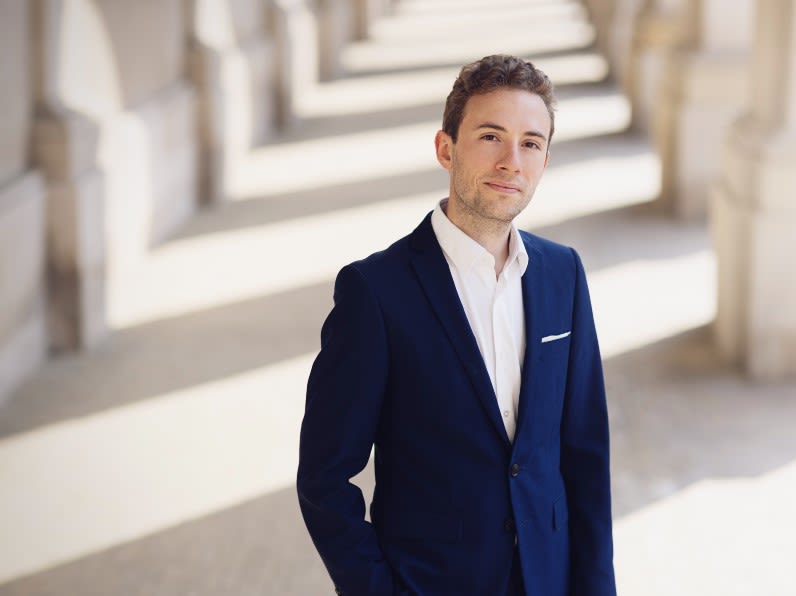
First prize winner and special prize of the orchestra at the eighth International Jorma Panula Conducting Competition, Nathanaël Iselin is a young French conductor based in Scandinavia. He is conductor in residence of the Iceland Symphony Orchestra.
Nathanaël is regularly invited to conduct a number of orchestras in Scandinavia and France, on pieces such as Bruckner’s Third, Beethoven’s Eighth and Dvořák’s Eighth Symphonies. On the operatic scene, Nathanaël recently conducted productions of Bizet’s Carmen, Verdi’s Rigoletto and Peter Heise’s Drot og Marsk. He will lead Rossini’s La Cenerentola in 2023.
Nathanaël has studied in four of the most prestigious music universities in Europe: the Sibelius Academy, Conservatoire National Supérieur de Musique in Paris, Hochschule der Künste in Zürich and Royal Danish Academy of Music. He has been mentored by such renowned conductors as Iván Fischer, Mariss Jansons, Fabio Luisi and Sakari Oramo, among others. He has performed as a percussionist under the direction of David Zinman, Dennis Russell Davies and Matthias Pintscher.
Nicolas Kierdorf
(28, Luxembourg)
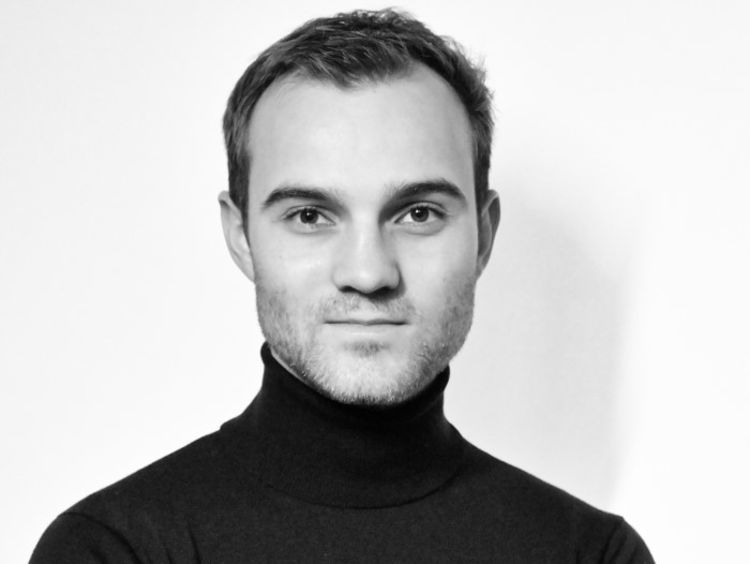
Nicolas Kierdorf was a semi-finalist of the Donatella Flick Competition 2021 and the German Conductors Award in 2019. He studied in Cologne and Hamburg. He has worked regularly with the Hamburger Symphoniker and has also worked with the WDR-Sinfonieorchester, Gürzenich-Orchester and Südwestfälische Philharmonie Konstanz. He has attended masterclasses with Kent Nagano, Nicolás Pasquet and Johannes Schlaefli, among others. Alongside symphonic music, Nicolas is particularly interested in opera, and has conducted performances of Humperdinck’s Hänsel und Gretel, Handel’s Alcina, Nicolai’s The Merry Wives of Windsor, and Mozart’s The Marriage of Figaro and Don Giovanni at the opera schools of Cologne and Hamburg. He has collaborated with the Concert Royal Köln, and was musical director for its 2018 production of Cimarosa’s Il matrimonio segreto and for the production of Handel’s Caio Fabriccio in 2022 at the Handel Festival, Halle. In 2021 he made his debut with the Camerata Hamburg at the city’s Elbphilharmonie and will be Michael Ellis Ingram’s assistant for the production of Verdi’s Aida in 2023.
Zofia Kiniorska
(26, Poland)
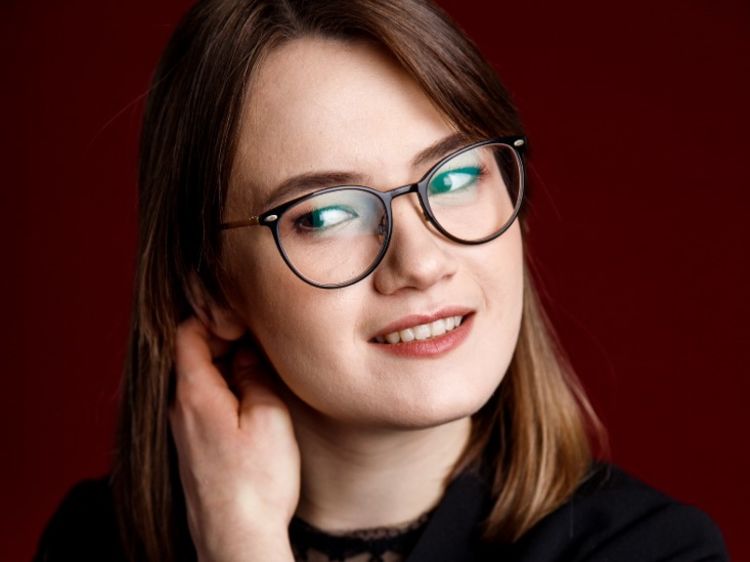
Zofia Kiniorska is a Polish conductor. In the 2022/23 artistic season, she is a resident conductor of the Sinfonia Varsovia, as part of the National Institute of Music and Dance scholarship. In 2020 she won the second prize and the Chamber Orchestra Award at the third Adam Kopyciński National Competition for Students of Conducting in Wrocław, Poland, and the Audience Award during the Conductor’s Academy 2021/22 with Paavo Järvi and Tonhalle Orchester Zürich. She was also a semi-finalist of the Premio Guido Cantelli 2022 competition in Torino, Italy.
Zofia has had the opportunity to conduct various orchestras, such as the Südwestdeutsche Philharmonie Konstanz, Baltic Sea Philharmonic, Polish Radio Orchestra, Arthur Rubinstein Philharmonic Orchestra of Łódź and the Jerzy Semkow Polish Sinfonia Iuventus Orchestra. She has participated in masterclasses led by Paavo Järvi, Marin Alsop, Johannes Schlaefli, Neeme Järvi, Kristjan Järvi, Leonid Grin, Carlo Montanaro, Jerzy Maksymiuk and Yu Feng.
Kingsley Lin
(21, United Kingdom)
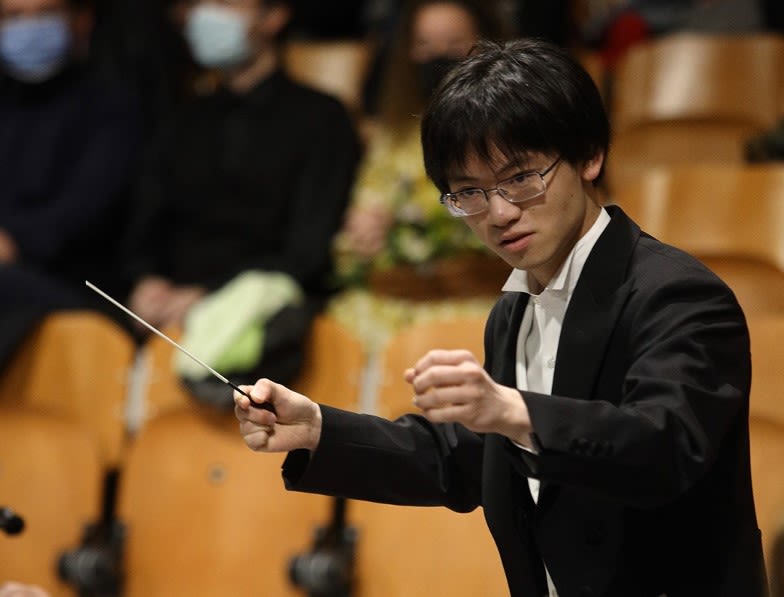
Kingsley Lin studied violin, viola, piano and composition from a young age. He studied violin with Boris Kucharsky at the Yehudi Menuhin School of music and, as a violinist, has participated in masterclasses with Roman Simovic, Pierre Amoyal, Cho Liang Lin and Alina Ibragimova, among others.
Kingsley studied conducting with Sian Edwards from 2017 to 2020, and in 2021 began his studies with Mark Stringer at the University of Music and Performing Arts Vienna, where he is also studying opera co-repetition. He has also participated in masterclasses with Rodolfo Saglimbeni, Michalis Economou, Mark Wigglesworth, Johannes Schlaefli and Marin Alsop. Orchestras he has conducted in masterclasses include the Manchester Camerata and the Südwestdeutsche Philamonie Konstanz.
In April 2022 he won the encouragement distinction prize at the fourth Athens International Masterclass and Competition, where he conducted the Athens Philhamonia in concert.
Aleksandra Melaniuk
(22, Poland)
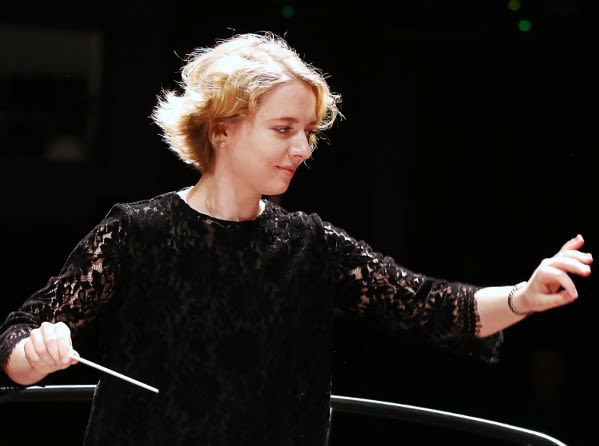
Polish conductor Aleksandra Melaniuk is currently studying conducting at the Poznań Academy of Music. Despite being only in the third year of her bachelor’s degree programme, she has already conducted numerous orchestras in Europe, including the Stavanger Symfoniorkester, Flanders Symphony Orchestra, Baltic Sea Philharmonic, Moravska Filharmonie Olomouc and Silesian Philharmonic Orchestra.
In the summer of 2022, she participated in three prestigious courses: Järvi Conducting Academy with the Järvi family and Leonid Grin in Estonia; Dirigentuka Conducing Masterclasses in Norway; and SOV Conducting Masterclass in Belgium. In 2021 she established her own orchestra which she conducted during concerts promoting British music in Poland. She has given the world premieres of several contemporary compositions, which she also recorded during sessions at the Enigma Centre in Poznań.
Having a deep interest in opera she has participated in productions of Puccini’s La Rondine with Silesian Opera and Szymanowski’s King Roger with Baltic Opera.
Artūrs Oskars Mitrevics
(24, Latvia)
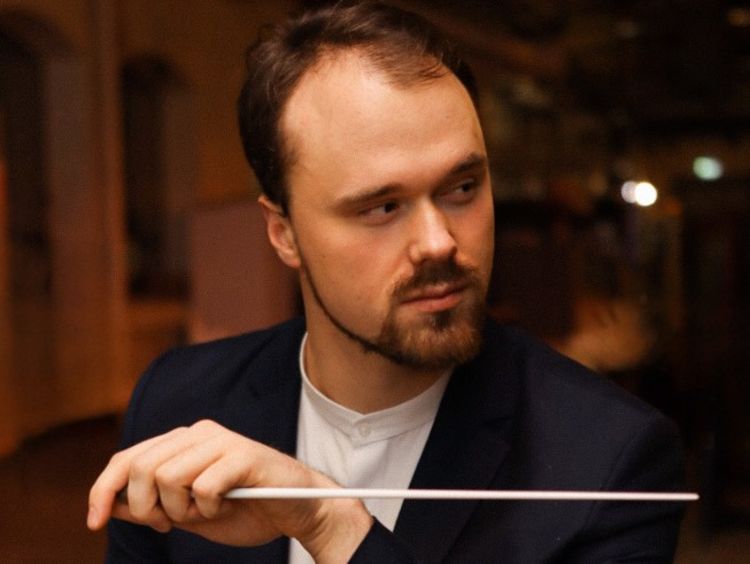
In 2022 Artūrs Oskars Mitrevics made his debut with the Latvian National Symphony Orchestra conducting Prokofiev’s Cinderella, and appeared twice with the Professional Wind Orchestra RIGA in programmes with works by Mendelssohn, Mahler, Strauss and a premiere by Latvian composer Edgars Mākens. Recently he has also collaborated with the North Netherlands Symphony Orchestra and MDR Sinfonieorchester Leipzig as a part of Weimar Conducting Masterclass with the professors Johannes Schlaefli and Nicolás Pasquet.
Previously he has collaborated with various youth orchestras both in Latvia and abroad, including Youth Academy Riga-Rostock Symphony Orchestra, Latvia’s Centenary Youth Symphony Orchestra and others. Currently he is completing his master’s degree in Orchestral Conducting at Jāzeps Vītols Latvian Academy of Music.
Alongside classical repertoire, he has a passion for Latvian contemporary music and has led several premieres of works by Latvian composers, such as Gundega Šmite, Edgars Mākens and others.
Jakub Montewka
(25, Poland)
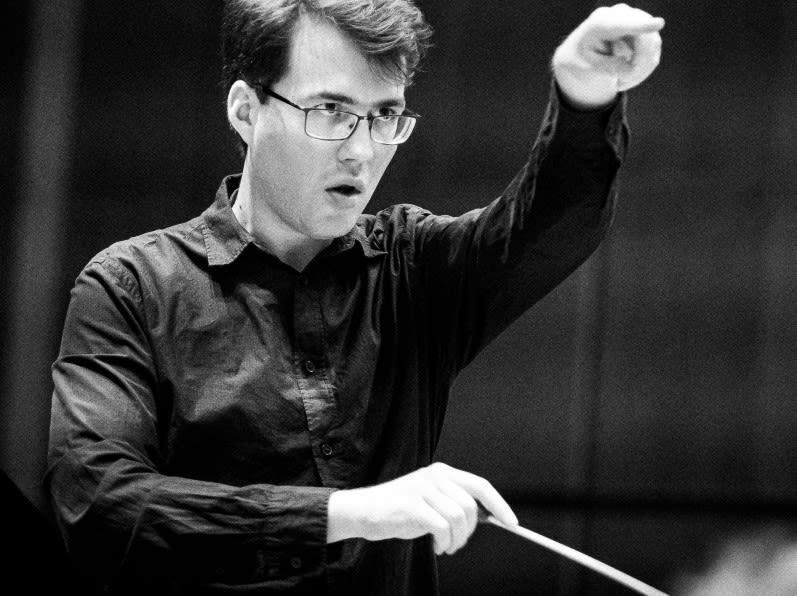
Jakub Montewka is assistant conductor of the Opole Philharmonic in the 2022/23 season. He is now in the final year of his masters conducting studies with Paweł Przytocki at the Krzysztof Penderecki Academy of Music in Kraków. He studied at the Royal Academy of Music in London (Composition, 2016–18) and at the Chopin University of Music in Warsaw (Composition and Conducting, 2018–20).
Jakub is a finalist of Bartók World Composers Competition 2020 and the seventh Witold Lutosławski Competition for Young Conductors. In 2019 he conducted the premiere recording of Maat’s Feather by Marcin Jachim, as a part of the CD debut of the Chopin University Modern Ensemble, nominated to the prestigious FRYDERYK 2021 award.
His calendar for the current season includes concerts with the Opole Philharmonic, Łódź Philharmonic and Gdańsk Philharmonic.
Kent Moussault
(29, Netherlands)
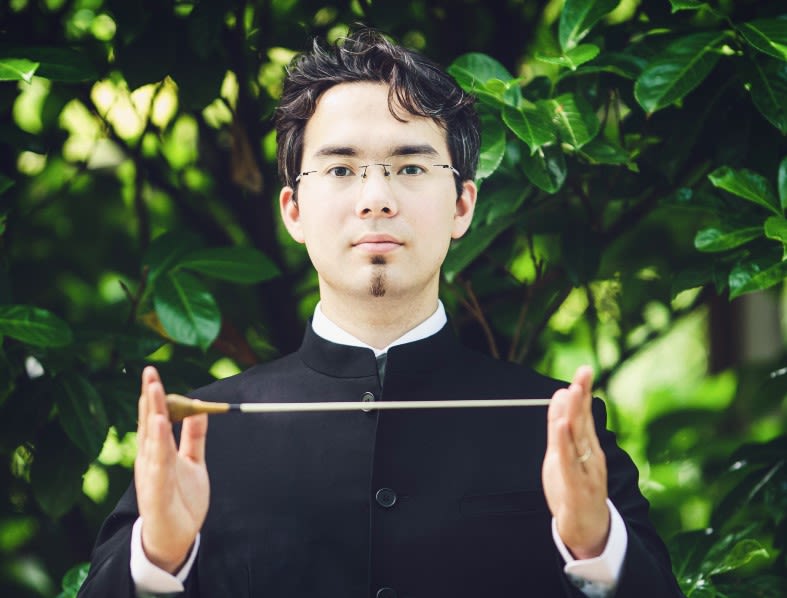
Dutch-Japanese conductor Kent Moussault studied conducting and composition at the Royal Conservatoire of Scotland, the Royal Conservatoire of The Hague and the Conservatory of Amsterdam. Kent won first prize at the Young Conductors Award 2016 in Hilversum.
He has conducted several professional orchestras including the Hamburger Symphoniker, PHION Orchestra, Royal Scottish National Orchestra, BBC Scottish Symphony Orchestra and the Noord Nederlands Orkest, and has been assistant to conductors such as Otto Tausk, Jac van Steen and Martyn Brabbins. Kent regularly works with contemporary composers and has conducted several world premieres. In 2022 he founded MoussaultArts for his work as a media composer.
In 2016 he received the Wagner scholarship provided by the International Association of Wagner Societies to visit the Bayreuth Festival. He was first prize winner of the 2023 Call for Conductors Budapest. Kent received financial support from the Kersjesfonds and RCS Scholarship Fund for his studies.
Jacob Niemann
(25, Germany)
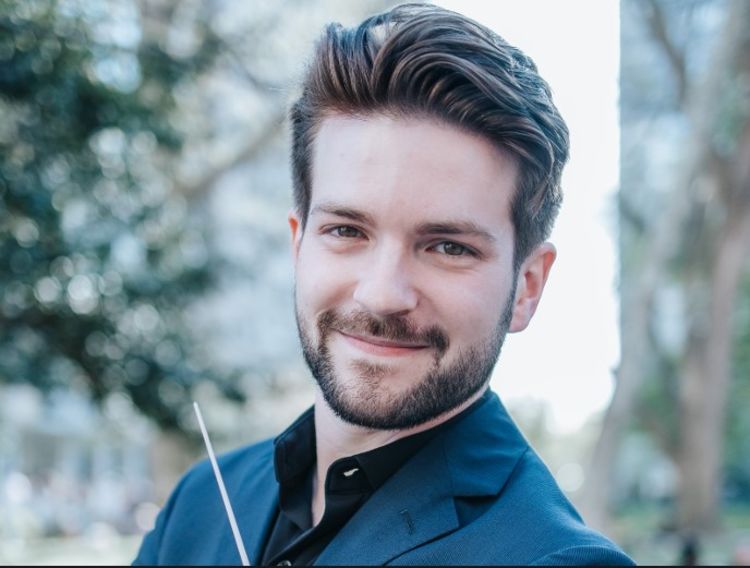
Jacob Niemann is a Rita E Hauser Conducting Fellow at the Curtis Institute of Music, mentored by Yannick Nézet-Séguin since 2020. During the summers of 2018, 2021 and 2022, Jacob received fellowships to attend the Aspen Conducting Academy, where he was awarded the 2021 Robert J Harth Conducting Prize. At Aspen he studied with Robert Spano along with guest teachers such as Mark Stringer, Patrick Summers and Hugh Wolff.
Through international conducting masterclasses, Jacob has conducted for David Zinman at the Tonhalle-Orchester Zürich and for Michael Tilson Thomas at the New World Symphony. Additionally he has served as cover conductor for Gianandrea Noseda at the National Symphony Orchestra and Miguel Harth-Bedoya at the Fort Worth Symphony Orchestra.
Clément Nonciaux
(30, France)
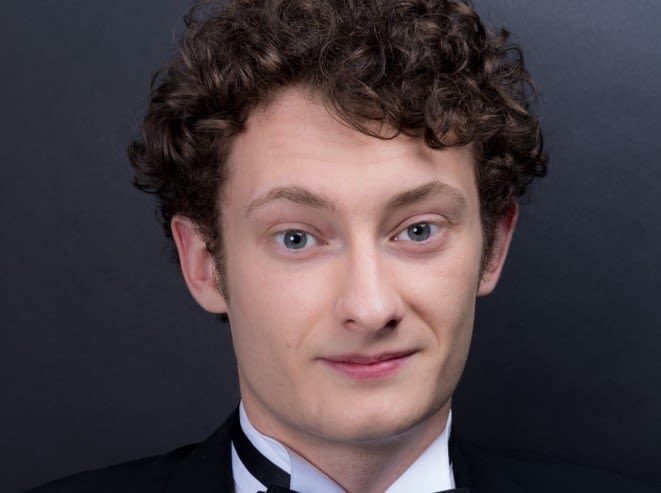
Clément Nonciaux began his musical career with piano at the Conservatoire de Tours at the age of six. He obtained a Bachelors degree in musicology in 2013, continued his piano studies in Paris, and quickly developed a passion for orchestral conducting. Following his interests, he began a bachelors degree in conducting under the direction of Scott Sandmeier at the Hochschule für Musik Freiburg, and worked in parallel as a repetiteur at the Teatro Municipal de Santiago de Chile, Theater Freiburg and Opéra de Tours. In 2021 he began a masters degree in conducting at the Universität der Künste Berlin under the direction of Steven Sloane and Harry Curtis.
He has conducted numerous orchestras including the Orchestra of the Komische Oper Berlin, Brandenburg State Orchestra, Neubrandenburg Philharmonic, Frankfurt State Orchestra. In 2022 he won second prize at the first International Rachmaninoff Competition for Pianists, Conductors and Composers. As a result he was invited to conduct the Mariinsky Orchestra in concert in Saint Petersburg.
Jakub Przybycień
(27, Poland)
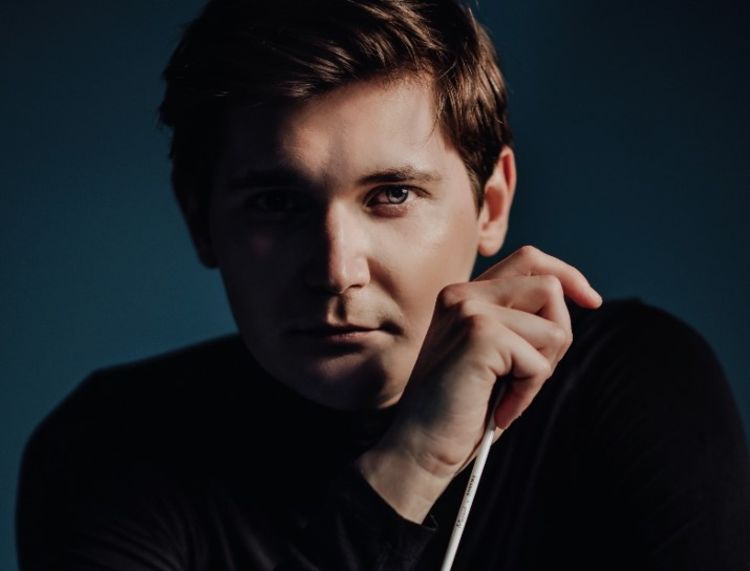
Polish conductor and violinist Jakub Przybycień is a Masters student and an assistant of the Professors Johannes Schlaefli and Christoph-Mathias Mueller at the Zurich University of the Arts. He made his conducting debut in 2018 at London’s Wigmore Hall conducting the EUYO-Ensemble. Currently Chief Conductor of the Zürcher Orchester Society, he is also Scholarship holder of the Forum Dirigieren. He was finalist of the Masterclasses with the Critical Orchestra Berlin 2022 and winner of the Neeme Järvi Prize at the Gstaad Festival Conducting Academy 2021.
He has honed his skills under the guidance of outstanding conductors, including Neeme, Paavo and Kristjan Järvi, Jaap van Zweden, Marin Alsop, Michael Sanderling and Jorma Panula. He has collaborated with many of the orchestras in Germany, Switzerland, France, Czech Republic, Poland and Estonia. During the current artistic season Jakub will be working with the Orchestre de Picardie in France, Mecklenburgische Staatskapelle Schwerin in Germany and with the Zielona Góra Philharmonic Orchestra in Poland.
Matthew Rhodes
(24, United Kingdom)
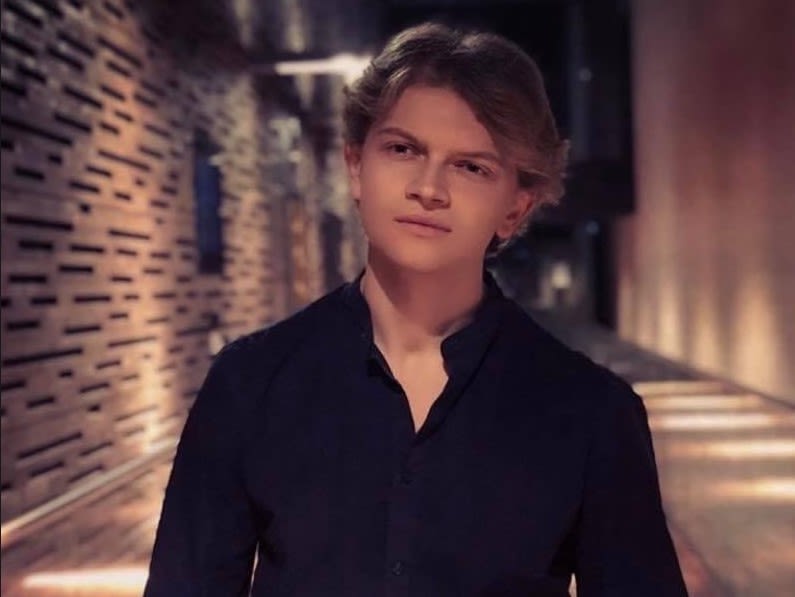
Matthew Rhodes is currently completing his Masters degree in orchestral conducting at the Royal College of Music, Stockholm, and the Norwegian Academy of Music, Oslo. He graduated in 2021 with a Bachelors degree from the Sibelius Academy, Helsinki.
In the 2022/23 season Matthew made his debut, with the Orchestre Philharmonique Royal de Liège in two concert productions. In addition to this, he returns for concerts with Norrköping Symphony Orchestra, Gävle Symphony Orchestra, the Orchestra of NorrlandsOperan, Västersås Sinfonietta, Kammarensemblen and Norrbotten NEO. In August 2022 Matthew was personally invited by Jukka-Pekka Saraste to conduct in the Fiskars Summer Festival in Finland alongside conductors such as Esa-Pekka Salonen, Hannu Lintu and Dalia Stasevska.
Matthew began his conducting studies at the age of 16 at the Junior College of the Royal Northern College of Music, under the instruction of Ewa Strusinska. He is generously supported by the Swedish Royal Academy and was awarded their National Stipend for conducting in 2023.
Konstantinos Terzakis
(28, Greece)
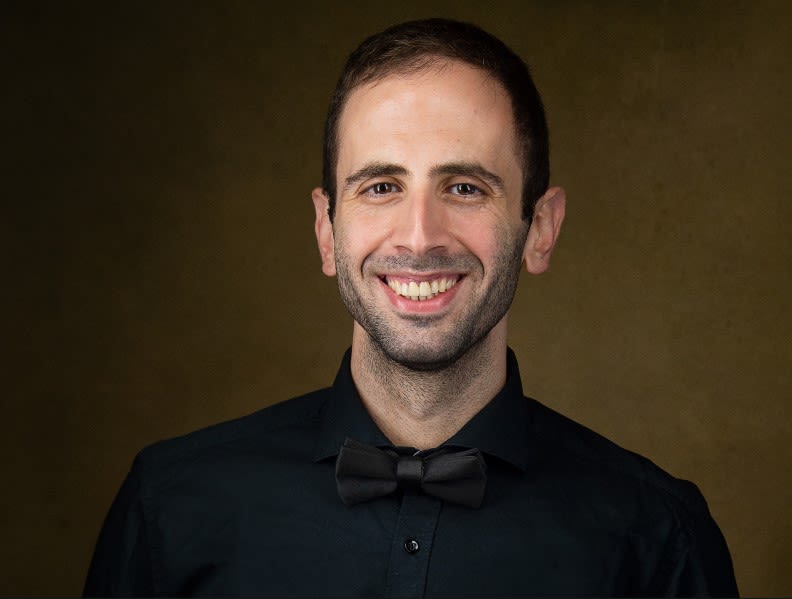
Appointed Assistant Conductor of the City of Birmingham Symphony Orchestra for 2022/23 and selected conductor at the Klangspuren Schwaz Festival 2021 in Austria under the International Ensemble Modern Academy, Konstantinos Terzakis has been based in the UK since 2019. He completed his Masters in orchestral conducting with Martyn Brabbins, Garry Walker and Alasdair Mitchell, having been awarded a full scholarship by the Royal Conservatoire of Scotland.
During his time with the CBSO he has assisted Ludovic Morlot at the Aldeburgh Festival and Kazuki Yamada at the BBC Proms. Last summer he debuted at the Athens Epidaurus Festival in collaboration with the Greek Composer’s Union and was selected as Conducting Fellow at the Lucerne Festival Academy 2022, which included a masterclass with Thomas Adés. In 2023 he debuts with the Greek National Opera, premiering the chamber opera Strella by Michalis Paraskakis.
Agata Zając
(27, Poland)
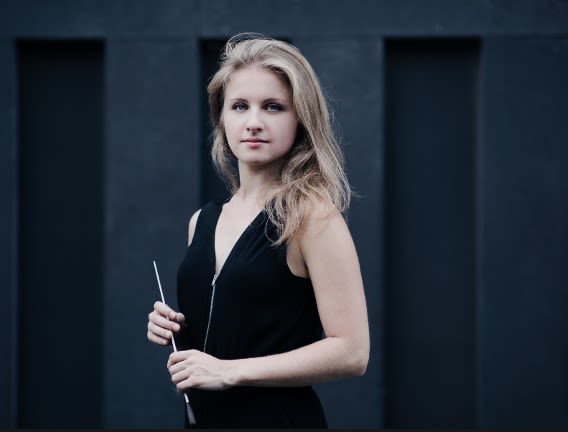
Agata Zając is a Polish symphonic and opera conductor. She started her musical path as a violinist, and then completed her conducting studies at the Poznań Academy of Music. She is currently the Mills Williams Junior Fellow in Conducting at the Royal Northern College of Music and she is continuing her education as a D A student at the Academy of Music in Kraków.
During her short career she has worked with many orchestras in Poland and abroad, including the Grazer Philharmoniker, Orchestre national de Metz, Manchester Camerata, Malta Philharmonic Orchestra, Greek National Radio Orchestra Orchestra, Warsaw Chamber Opera and Poznań Philharmonic.
She has participated in conducting masterclasses with Johannes Schlaefli, Mark Heron, Peter Eötvös and Marin Alsop. She was a participant of the Tonhalle Conductors’ Academy with Paavo Järvi 2022/23 and Gstaad Conducting Academy 2021, and has been a finalist of many international competitions and auditions, receiving special prizes and scholarships.
Laurent Zufferey
(30, Switzerland)
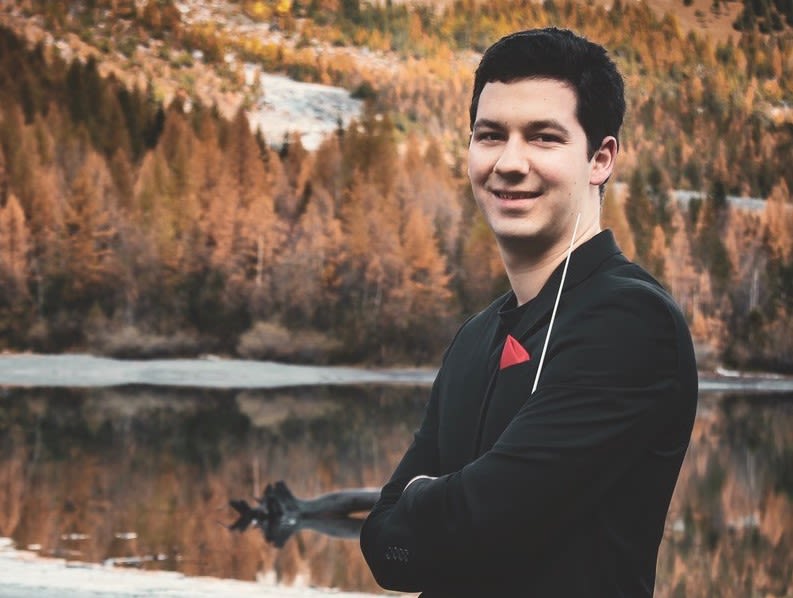
Laurent Zufferey is a Swiss conductor and graduate of the Royal Northern College of Music in Manchester. He is currently Artistic Director of the orchestra Valéik, a polymorph ensemble based in Switzerland. Graduating during the pandemic, Laurent’s first break came in May 2021, when Paavo Järvi invited him to his first Conducting Academy at the Tonhalle Zürich, in which he was awarded with the Audience Prize.
A few months later, Teodor Currentzis invited him to the residence of MusicAeterna in Lucerne. During the public masterclass, Laurent had the opportunity to conduct the first movement of Mahler’s Symphony No 5 in the KKL Concert Hall. Since the start of the 2022/23 season, Laurent has been assistant conductor of the Orchestre Royal Philharmonic de Liège and of the Basel Sinfonietta. Future engagements include concerts in Belgium, France, Germany and Switzerland.
History of the Competition
In 1990 Donatella Flick founded her Conducting Competition to offer much-needed support to young conductors at the start of their careers. She remains at the helm of the Competition working with a small team and in partnership with the London Symphony Orchestra to present the Competition every two years.
Donatella Flick became aware of the challenges faced by young conductors bridging the gap between conservatoire training and a professional career, the point at which many talented conductors falter or even abandon their conducting ambitions completely, and in 1990 she founded the Donatella Flick Conducting Competition to help address the issue. Now 33 years on, around 300 young conductors have taken part in 16 biennial Competitions in London and there have been 17 winners (in 2000, two conductors took the prize jointly). In 1996 a partnership with the London Symphony Orchestra began which has continued to grow ever since. The Finalists are lucky enough to conduct the LSO throughout the Competition, and the Orchestra has a collective vote as part of the judging panel.
The prize comprises a cash award from Donatella Flick of £15,000, and a one-year tenure as Assistant Conductor of the London Symphony Orchestra. This unique prize, the result of the close collaboration developed by Donatella Flick with the LSO since 1996, offers unparalleled access to the Orchestra and its roster of conductors. They will have the opportunity to assist some of the world’s finest conductors including Sir Simon Rattle, Gianandrea Noseda, Michael Tilson Thomas and LSO Chief Conductor Designate from September 2023, Sir Antonio Pappano. There may also be opportunities to conduct the LSO in concert, on tour, and to work on learning and community projects, helping to lay the strongest of foundations for a successful conducting career.
Many of the Competition’s winners have developed excellent careers. François-Xavier Roth (joint-winner in 2000) developed such a fine rapport with the LSO during his time as Assistant Conductor that he has worked with the Orchestra every year since, leading the LSO Panufnik Composers Scheme workshops for many years and in 2016 becoming Principal Guest Conductor. His broad-ranging, international career extends to Cologne, where he is the City’s Generalmusikdirektor and to his work with Les Siècles, the award-winning Parisian philharmonic orchestra he founded in 2003, which employs period instruments and groundbreaking performance formats, quietly revolutionising the way we experience music. François-Xavier Roth returned to the Competition in 2018 but this time to sit on the jury.
In 2014 Elim Chan became the first woman to win the Competition and her star has been rising sharply ever since. She was appointed to the Dudamel Fellowship programme with the LA Philharmonic in 2016/17 and in 2018 she became Principal Guest Conductor at the Royal Scottish National Orchestra. The year 2019 saw her BBC Proms debut with the BBC National Orchestra of Wales and she was appointed Chief Conductor of the Antwerp Symphony Orchestra from the 2019/20 season. Highlights of this season include debuts with the Pittsburgh and San Francisco Symphony Orchestras, appearances with orchestras in Toronto, Cincinnati and Atlanta and her return to the Los Angeles Philharmonic and Rotterdam Philharmonic orchestras. Elim Chan was lucky enough to receive her prize in 2014 from the Competition’s Patron, HRH the former Prince of Wales, who attended with Donatella Flick.
Donatella Flick has always worked hard to ensure that the Competition benefits everyone who takes part, and not only the winners. She achieves this through carefully considered repertoire for each round, and by inviting conductors and musicians of the highest calibre to be on the jury, giving their time for free and bringing with them a wealth of experience and wisdom.
In 2018 the Competition broadened its reach through live-streaming and the production of an award-winning documentary. The Competition Final was streamed live for the first time, allowing a worldwide audience on medici.tv to experience the Competition at home, as well as the live public audience in the Barbican Hall. The public were also given access to the preliminary rounds for the first time. The maximum age for applicants was reduced from 35 to 30, to better target conductors just starting their professional careers, and citizens of Iceland, Liechtenstein, Norway and Switzerland were able to apply for the first time, as well as EU citizens and UK citizens.
In 2018 and 2021, Il sogno del podio, a major award-winning documentary about the Competition presented by Milly Carlucci, was produced by RAI TV, Italy’s national broadcaster.
In 2021, 29-year-old Spanish conductor Julio García Vico won the 16th Competition, which was held at LSO St Luke’s. The Competition returns to LSO St Luke’s this year.
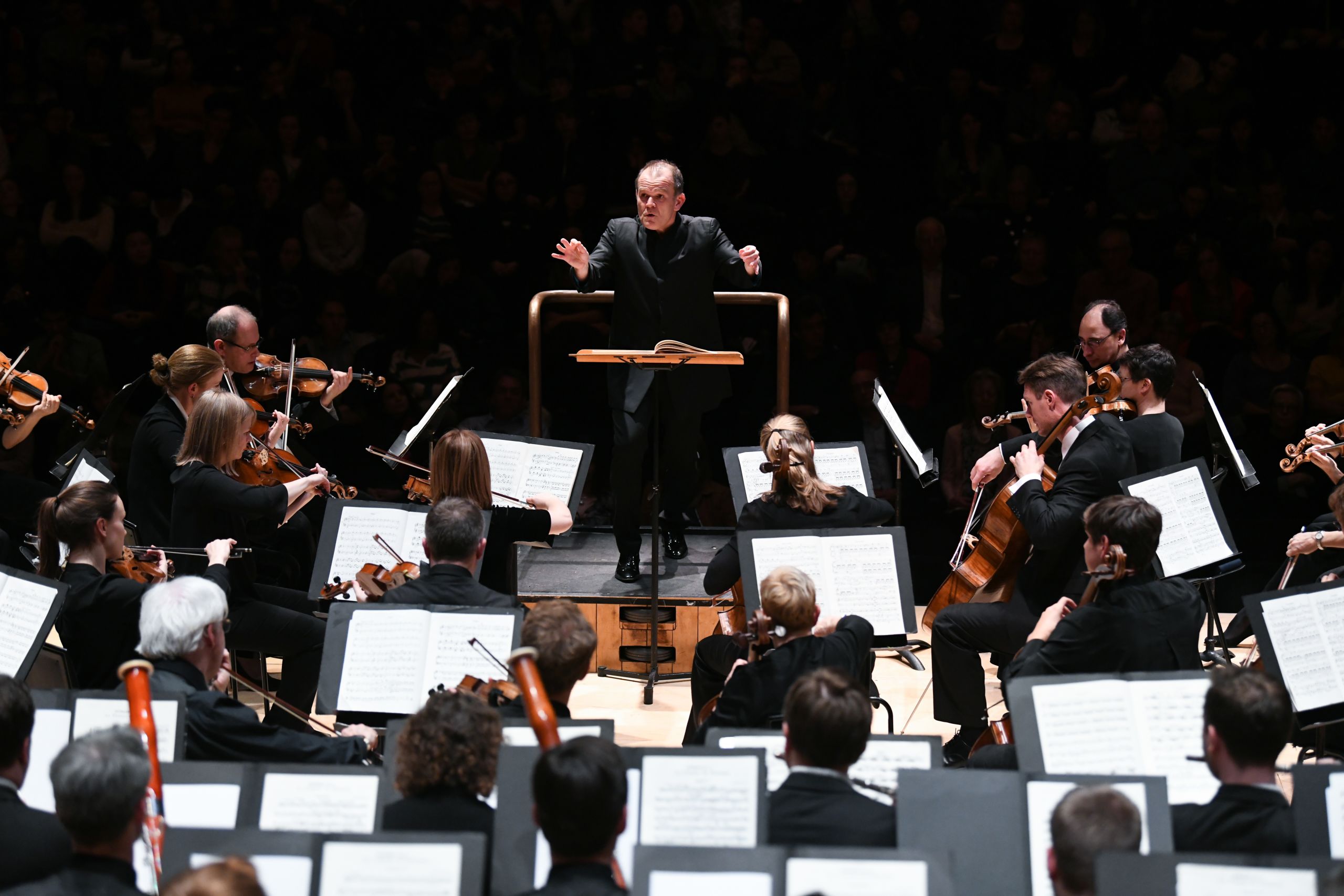
François-Xavier Roth (2000 joint winner)
François-Xavier Roth (2000 joint winner)
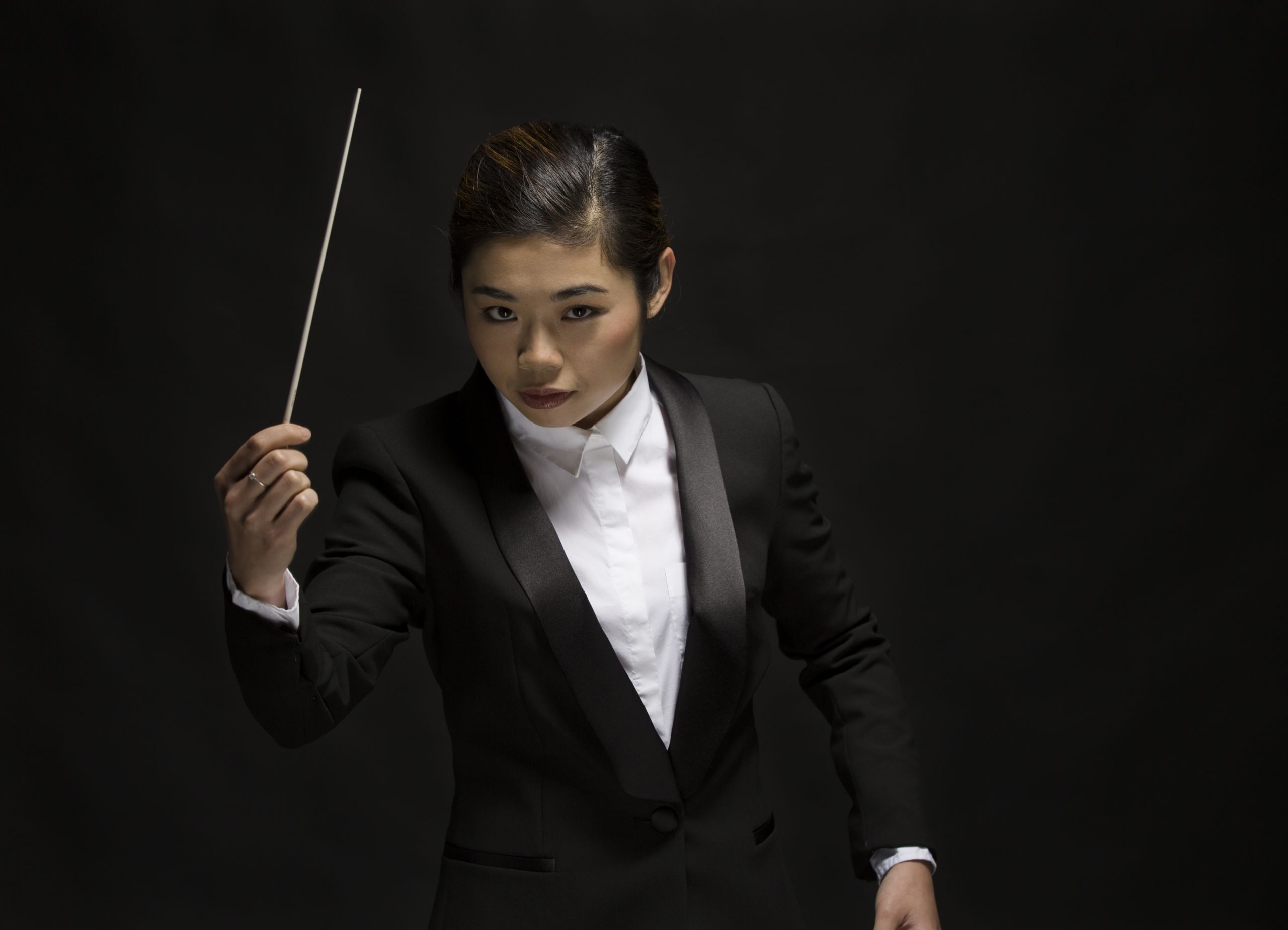
Elim Chan (2014 winner)
Elim Chan (2014 winner)

Elim Chan (2014 winner)
Elim Chan (2014 winner)
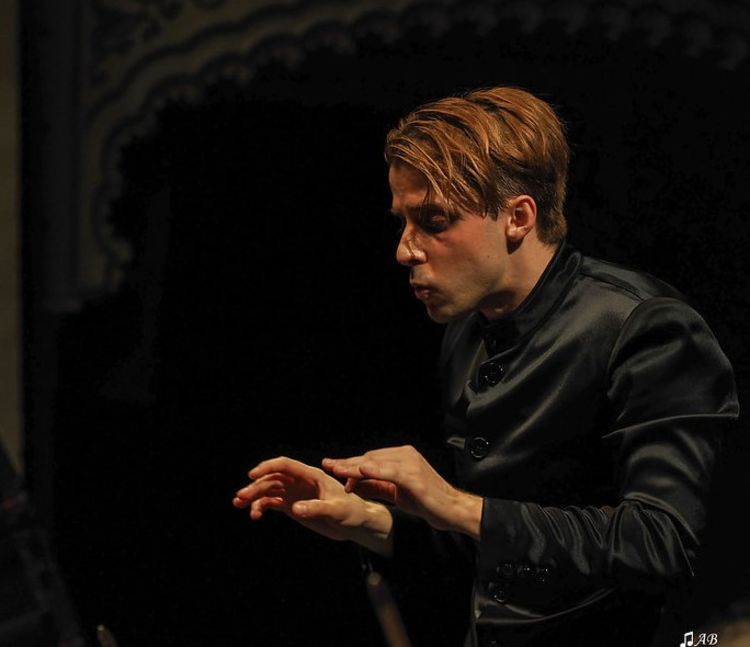
Felix Mildenberger (2018 winner)
Felix Mildenberger (2018 winner)
London Symphony Orchestra
At the London Symphony Orchestra we strive to inspire hearts and minds through world-leading music-making. We were established in 1904, as one of the first orchestras shaped by its musicians.
Through inspiring music, a world-leading learning and community programme and technological innovations, our reach extends far beyond the concert hall.
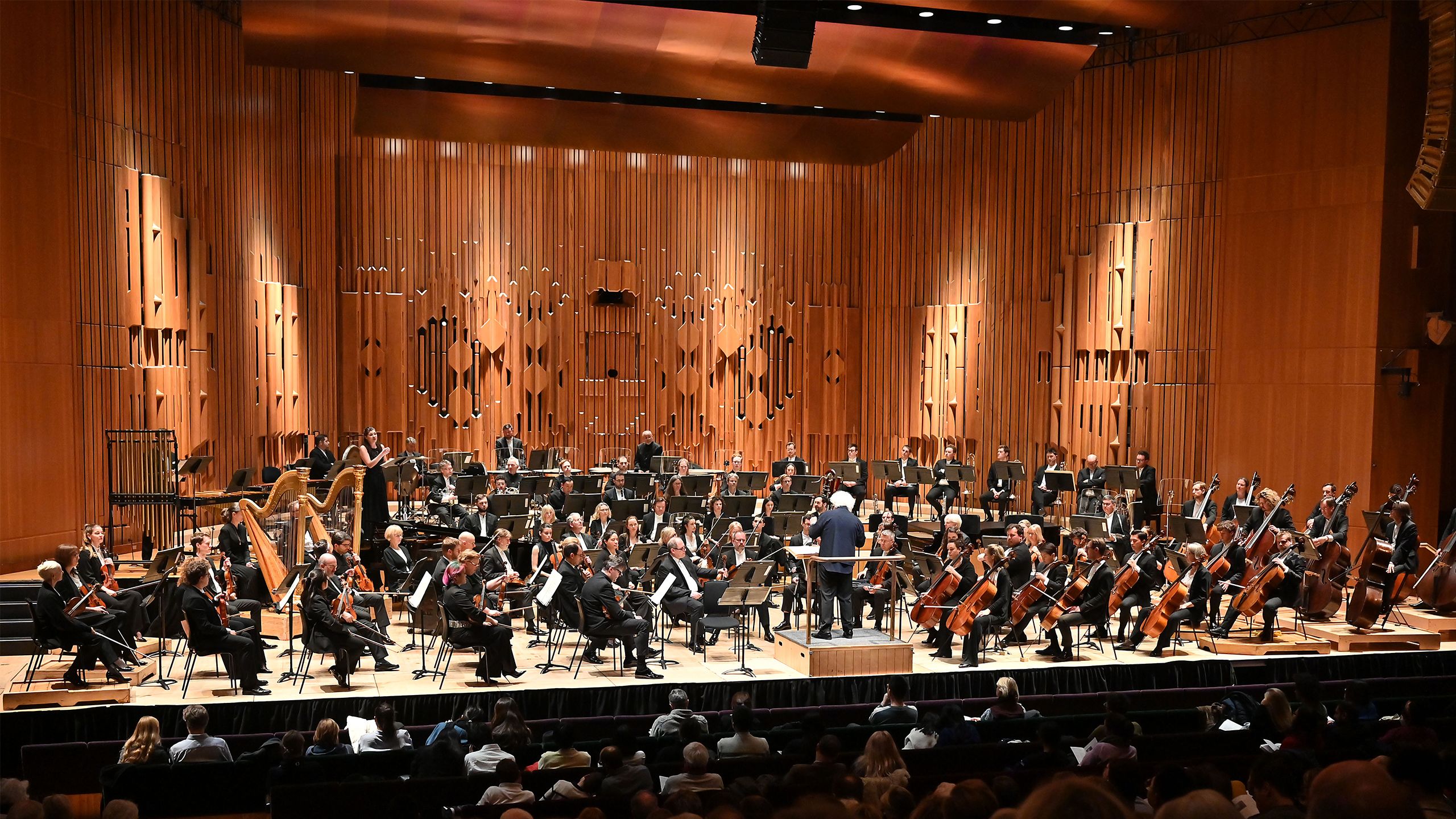
On Stage
Leader
Carmine Lauri
First Violins
Clare Duckworth
Ginette Decuyper
Laura Dixon
Maxine Kwok
William Melvin
Elizabeth Pigram
Claire Parfitt
Laurent Quénelle
Sylvain Vasseur
Caroline Frenkel
Dániel Mészöly
Erzsebet Racz
Julia Rumley
Second Violins
Sarah Quinn
Miya Väisänen
Matthew Gardner
Alix Lagasse
Belinda McFarlane
Csilla Pogany
Andrew Pollock
Paul Robson
Aleem Kandour
Gordon MacKay
José Nuno Matias
Violas
Steve Doman
Edward Vanderspar
Gillianne Haddow
Malcolm Johnston
Anna Bastow
Germán Clavijo
Sally Belcher
Michelle Bruil
Errika Collins
Clifton Harrison
Cellos
David Cohen
Laure Le Dantec
Alastair Blayden
Eve-Marie Caravassilis
Daniel Gardner
Amanda Truelove
Jessie Ann Richardson
Joanna Twaddle
Double Basses
Lorraine Campet
Thomas Goodman
Joe Melvin
Jani Pensola
Adam Wynter
Hugh Sparrow
Flutes
Claire Wickes
Imogen Royce
Piccolo
Sharon Williams
Oboes
Olivier Stankiewicz
Rosie Jenkins
Cor Anglais
Thomas Davey
Clarinets
Chris Richards
Chi-Yu Mo
Bass Clarinet
Katy Ayling
Bassoons
Daniel Jemison
Helen Simons
Hugo Mak
Lorna West
Horns
Timothy Jones
Angela Barnes
Daniel Curzon
Jonathan Maloney
Trumpets
James Fountain
Kaitlin Wild
Cornets
Niall Keatley
Will O’Sullivan
Trombones
Peter Moore
Andrew Cole
Bass Trombone
Paul Milner
Tubas
Ben Thomson
Nick Smith
Timpani
Patrick King
James Bower
Percussion
Neil Percy
David Jackson
Sam Walton
Harp
Bryn Lewis
Thank You
Committee of Honour
Salvatore Accardo
Riccardo Chailly
Jacob Grierson
Evgeny Kissin
Carlo Majer
Sir Antonio Pappano
Maurizio Pollini
Carlo Rizzi
Yuri Temirkanov
Maxim Vengerov
Selection Panel 2023
Ginette Decuyper LSO First Violin
Sian Edwards Conductor
Patrick Harrild Former LSO Principal Tuba
William Relton Director
Armin Zanner Head of Vocal Studies at the Guildhall School of Music & Drama and Deputy Director of Music
Jury
David Alberman LSO Principal Second Violin & Chair
Sally Beamish Composer
Martyn Brabbins Conductor
Sian Edwards Conductor
Juliana Koch LSO Principal Oboe
Sir Antonio Pappano Conductor
Special thanks to
Kathryn McDowell and the Members of the London Symphony Orchestra.
The Selection Panel, which has spent many long hours watching videos and sifting through CVs and recommendations to choose 20 candidates.

